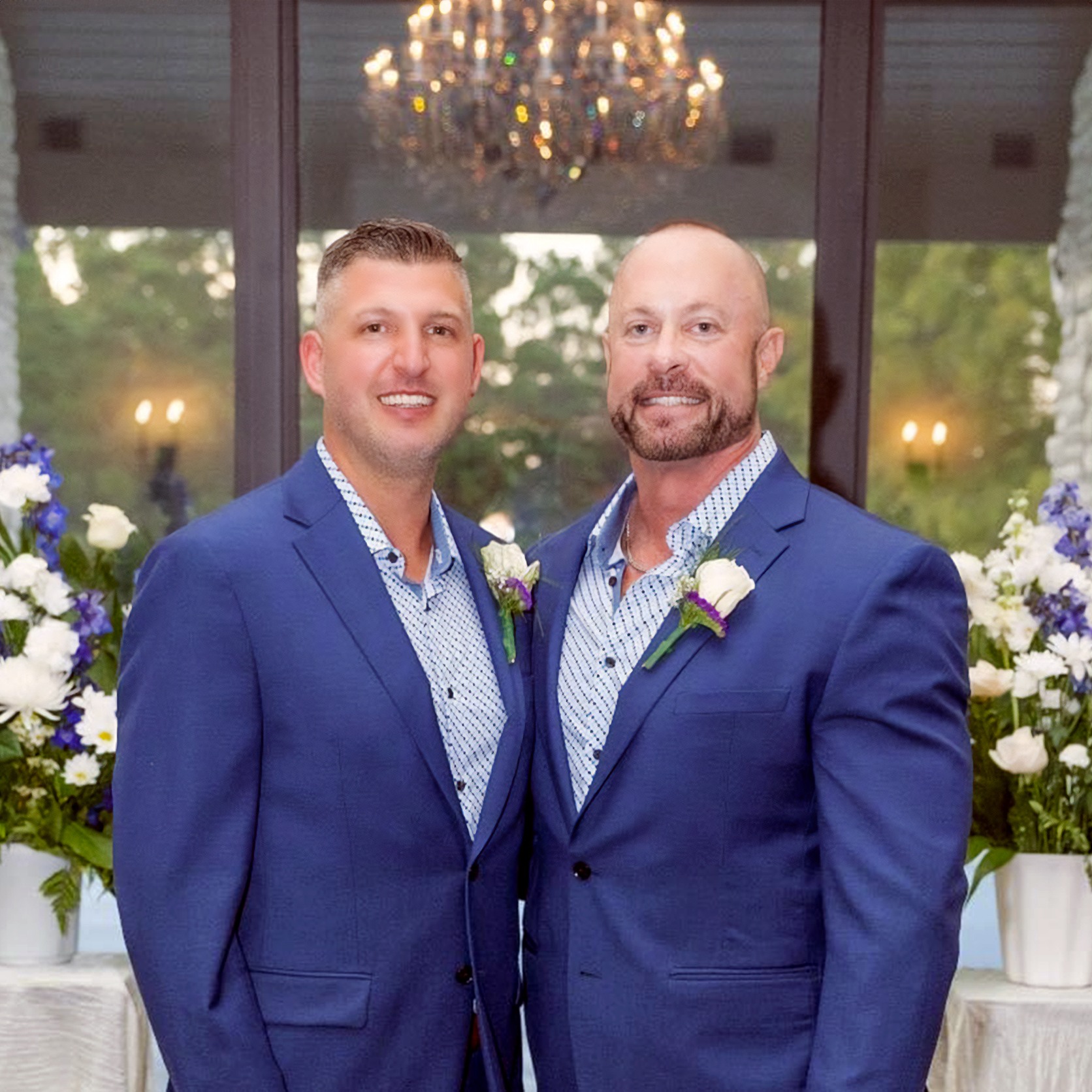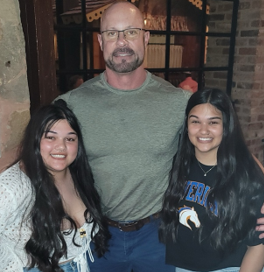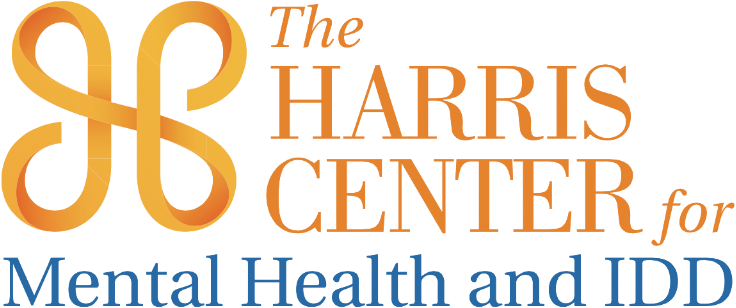
 For the past two decades, Dr. Steven Coats, 51, has been practicing psychology, including 12 years at The Harris Center for Mental Health and IDD as Lead Psychologist, Competency and Sanity Evaluation Unit. What you may not know is that he is not only passionate about his work, but he’s also a loving husband, a proud dog-dad, an amateur bodybuilder, and yes, he also happens to be gay. Even though he has been ‘out’ since his 20s, it’s a personal trait he’s only felt comfortable being open about recently.
For the past two decades, Dr. Steven Coats, 51, has been practicing psychology, including 12 years at The Harris Center for Mental Health and IDD as Lead Psychologist, Competency and Sanity Evaluation Unit. What you may not know is that he is not only passionate about his work, but he’s also a loving husband, a proud dog-dad, an amateur bodybuilder, and yes, he also happens to be gay. Even though he has been ‘out’ since his 20s, it’s a personal trait he’s only felt comfortable being open about recently.
“I have a friend in his early 60s who grew up in my same Texas hometown. He was in a very religious Christian family. To this day, his mother refuses to allow him to visit her home if he’s accompanied by his partner. One of his brothers still will not speak to him. He has basically been isolated from his biological family and had to create his own family, including his daughter who he raised through college,” says Dr. Coats. “Simply because he is gay, he was completely shunned from his family.”
Dr. Coats is happily married to his husband of one year, Travis, who works in physical therapy. Together, they’ve rescued seven dogs and are wanting to eventually build a dog rescue on a rural property to save even more. He also is a proud uncle of two young ladies, Ashley and Brianna, who recently graduated in the top 5% of their high school class and will start college this fall.
“When I met my husband, I realized that this is the person I wanted to open my heart and life to, share everything I have with. I was thankful for that privilege to get legally married, so if something were to happen to me, he is entitled to property. God forbid he’s in an emergency situation, the hospital wouldn’t be able to deny access to him. Marriage brings those legal rights and protections,” says Dr. Coats.
While much has been accomplished in the past 15 years, including repealing the "Don't Ask, Don't Tell" policy in 2010, legalizing same-sex marriage nationwide in 2015, and allowing same-sex adoption nationwide in 2016, there’s still a long way to go to reach equality.
On this journey, many people in the LGBTQ+ community face significant mental health challenges due to societal discrimination. Dr. Coats emphasizes the importance of addressing these concerns, particularly among bisexual and transgender individuals who experience the highest rates of mental health issues. Studies have found that up to 40% of LGBTQ+ youth seriously consider suicide. Even more face mental health issues like depression and anxiety.
Navigating Mental Health Resources and Barriers
Accessing mental health resources is often challenging for LGBTQ+ individuals.
“Many people face hurdles such as financial constraints, lack of insurance, poverty, insufficient information, and lack of LGBTQ+-aware providers,” says Dr. Coats. “These barriers, compounded by fears of stigmatization, often prevent individuals from seeking the help they need.”
The Harris Center strives to break down these barriers by providing annual cultural sensitivity training for all its employees and valuing its patients for who they are and where they are in their personal journeys. Dr. Coats encourages LGBTQ+ individuals in need of mental health care to reach out to a trusted source, whether that be a primary care physician, a family member, a friend, or a local mental health authority like The Harris Center.
 “When you are part of a community that has been marginalized and feel like you have to hide who you are at a fundamental level, it can be very lonely and isolating,” shares Dr. Coats. “With that loneliness, with feeling disconnected and isolated from other people, comes anxiety and depression. Loneliness is feeling as though you are on an island, rejected, no way to reach out for help. And that is not a healthy place for people to be in.”
“When you are part of a community that has been marginalized and feel like you have to hide who you are at a fundamental level, it can be very lonely and isolating,” shares Dr. Coats. “With that loneliness, with feeling disconnected and isolated from other people, comes anxiety and depression. Loneliness is feeling as though you are on an island, rejected, no way to reach out for help. And that is not a healthy place for people to be in.”
The Harris Center offers peer support and community programs to help these patients connect with others who identify as part of the LGBTQ+ community, who can provide a level of understanding and compassion that complements professional mental health treatment.
To help reduce stigma, promote understanding, and provide better mental health support for the LGBTQ+ community, Dr. Coats advises starting at the individual level by engaging in open-minded, empathetic conversations with LGBTQ+ people in our lives.
“Understanding their experiences can help dismantle stereotypes and foster a more inclusive community,” he says. “Take time to listen, be open-minded, and ask questions to help you find better understanding. In learning about the lives of others who may seem different from yourself, you might learn how you and others may have contributed to perpetuating stigma even without intending to do so. Be kind and compassionate, and challenge your thinking about stereotypes. Developing empathy for those around us can build better communities and stronger, supportive relationships at every level of our society.”
Dr. Coats suggests several resources peer support, like the LGBT National Help Center which can be reached online and by phone at 1-888-843-4564. In addition, there are religious groups and non-profits in communities across the country that serve to support LGBTQ+ persons. Some of those include: PFLAG (Parents and Friends of Lesbians and Gays), Gay, Lesbian, and Straight Education Network (GLSEN), The United Way, National Alliance on Mental Illness, and The Trevor Project. Dr. Coats, along the other experts at The Harris Center, are also available to lend a listening ear.
“The Harris Center holds as one of its core values that all recipients of services should be accepted and understood for who they are and for where they are in their life's journey. LGBTQ+ persons are welcome at The Harris Center, and its clinicians are ready to tailor services to their unique needs and circumstances.”




